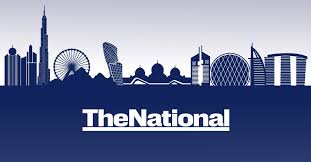Article

Four things we have learnt about the world in the past 12 months
Diplomats hate making predictions. This is partly because we hate to be wrong. It is partly because we don’t know as much as we pretend to. It is mainly because the world is now so, well, unpredictable. But as we stagger towards 2018, here are four clues from 2017 on what lies ahead:
Firstly, maybe 2016 was not normal after all. The dividing line of the 21st century remains whether you believe that we can live together or must live apart.
In 2016, the political agenda was often set by tyrants, terrorists and tabloids. The global campaign against globalisation became the international campaign for nationalism. Extremists seemed to be dominating the battlefields and ballot boxes.
But as 2017 ends, I hope we can say that the co-existers are back on the front foot. They won elections against extremists in France and Germany despite the efforts of some in Washington and Moscow. They pushed ISIL back on the ground in Iraq and online. They marched against efforts to ban Muslims from the US.
Humanity's erratic story is one of gradual evolution of reason over craziness, expertise over instinct, community over tyranny and honesty over lies. But we sometimes have bad years, decades or centuries. The scaffolding built with patience and sacrifice to protect diversity, freedom and the rule of law is fragile. But 2017 showed a growing public willingness to drain the swamp of those who weaponise intolerance as a panacea for globalisation. Let’s hope that 2018 continues to prove that there is no global problem to which the answer is a bigger wall.
Second, we still need to solve the great 21st century challenge: how to create more winners from globalisation while protecting those left behind. That gap remains far too wide. Inequality is the greatest geopolitical risk today. If displaced people had a country, it would be the 24th largest in the world. It is not enough to be tough on extremism. We need to be tough on the causes of extremism.
And that should start with education. Two thirds of young people today will work in jobs that do not yet exist. More than five million jobs will disappear by 2020. Yet most of the world’s young people are still taught in factory schools and a staggering 75 million are not receiving any formal education at all. Six out of ten young people can’t read or add up.
With previous industrial revolutions, we have had decades or even centuries to reinvent ourselves. This time, the pace of change means we won't have that luxury. Half the knowledge acquired during the first year of a tech degree is outdated by graduation.
I’m confident that 2018 will be the moment for a great leap forward in not just what we learn, but how and why we learn. A network of pioneer educators, policy makers and thinkers are emerging to equip a generation on the move to thrive, as citizens of everywhere. We can develop the knowledge, skills and character to ensure the robots work for us, not the other way round. Education won’t stop today’s conflicts. But it might stop tomorrow’s.
Third. there is a global leadership vacuum. Sadly, the US is making clear that as long as Donald Trump is president, it is going it alone: an election for leader of the free world created a vacancy for leader of the free world. Worse than that, the White House is undermining carefully constructed agreements on climate change, the role of the UN, and the dim prospects for peace between Israel and Palestine.
Time and again in 2017, we saw that governing is getting harder. The graft of developing and executing a strategy is being shaken by the intensity of the 24/7 media, by shortening attention spans, and declining trust. Some who should be providing global leadership are opting instead to be disruptors. From bombing Syrian civilians to ‘save’ them to promoting extremists in Europe and America, Mr Putin seems to see that as a foreign policy.
Diplomacy is never perfect. But in a driverless world, the implications of diplomatic failure are now more catastrophic than ever. So we need responsible global leaders of vision, bridge builders who recognise that a retreat from the world is the path to peril, to fill the vacuum left by the world powers.
Finally, governments and tech need to talk. It may be that future generations won’t look back at 2017 as the year of pinball diplomacy on North Korea or even at the risk that their life expectancy was shortened by America pulling out of climate change agreements. But they may look at it as the year in which the extraordinary opportunities and perils of Artificial Intelligencebecame clearer. We are creating something we cannot understand. It may be humanity’s last invention. Yet there is virtually no serious dialogue between states and tech companies about the ethics and governance of AI or technology more widely.
We have to crack this in 2018 and get the discussions in place that allow mankind to make the best of our collective ingenuity. This means abandoning Tetris solutions in a Minecraft world and focusing on what we can fix together. Perhaps we can take most confidence from the energy of the "founders’" generation (youthquake replaced post truth as the word of the year).
On that more positive note, here are my diplomacy prizes for 2017:
Soft power of the year:
France (including for the incredible Louvre in Abu Dhabi)
Diplomatic innovator of the year:
Denmark for the appointment of a "tech ambassador"
Diplomat of the year:
Zeid Ra’ad, UN commissioner for human rights, for his courageous (and all too often lonely) stances
Social media ambassador of the year:
John Casson, UK ambassador in Cairo, who has nearly 1 million Twitter followers
Humanitarian of the year:
Becky Dykes, may she rest in peace

